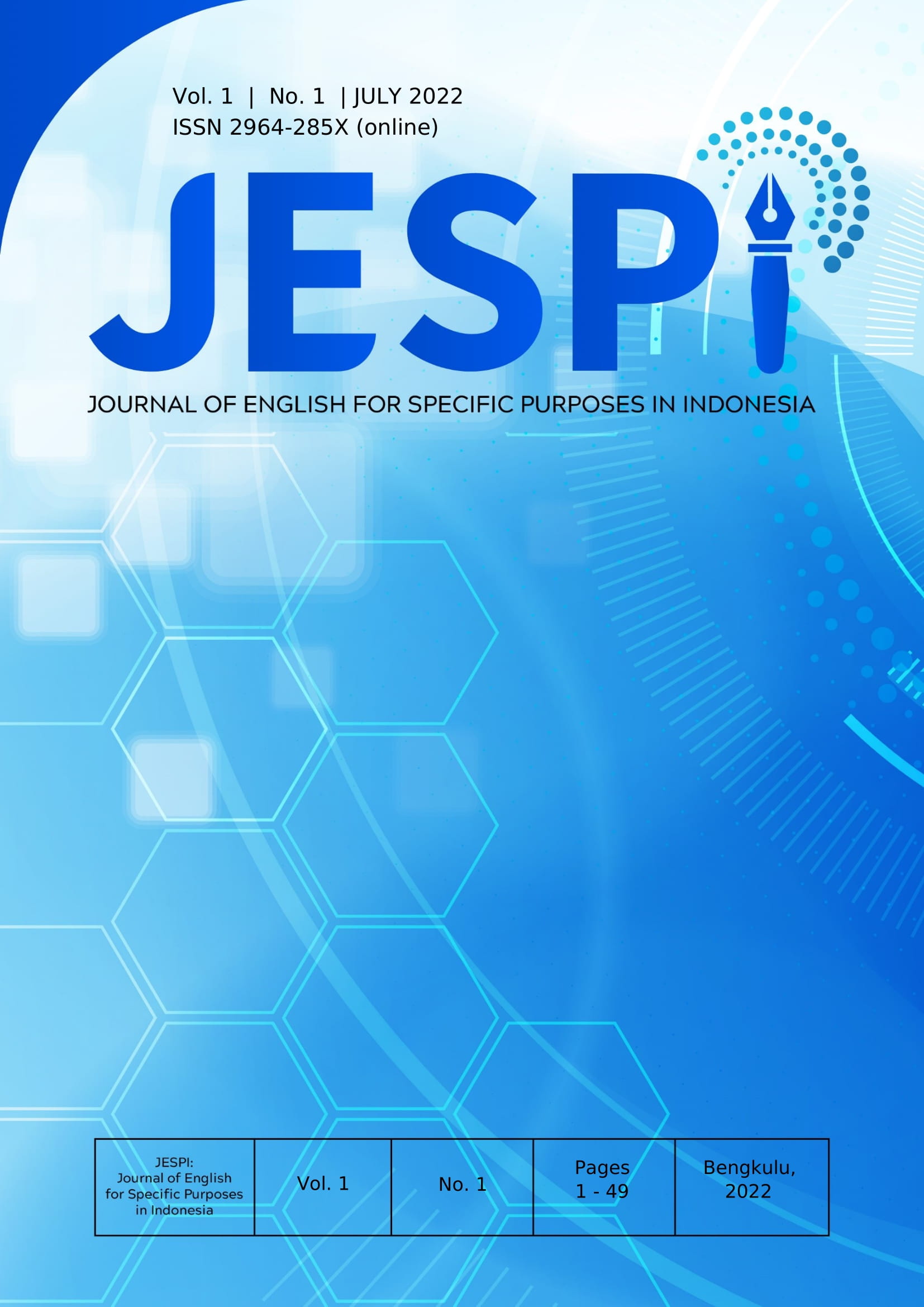Main Article Content
Abstract
Gender is defined as all of the social and cultural habits, roles,
conditions, and responsibilities regardless of one's biological gender,
that are necessary for a society. This study aims to explore EFL
students' attitudes toward learning the English Language base on
teachers' gender. When teachers assess pupils with high levels of
problem conduct for special education referral, cross break analysis
finds that male teachers are substantially more likely than female
teachers to decide not to recommend. The impact of teacher gender on
this scenario has been investigated, but the results have been
equivocal. Furthermore, while teacher expectations have influenced
student academic achievements and student gender stereotypes have
molded such expectations, the gender of the teacher has been
overlooked in this context. The descriptive quality method was used in
this research with the students from the National University of
Battambang who currently studying for master's degrees. The
questionnaires were given along with the individual interviews. The
result showed that female teachers were the most selected due to the
attitude of the students when they were studying with female teachers.
Keywords: Behavioral Aspect of Attitude, Cognitive Aspect of Attitude,
Emotional Aspect of Attitude, Teacher gender.
Keywords
Article Details

This work is licensed under a Creative Commons Attribution-ShareAlike 4.0 International License.

Ciptaan disebarluaskan di bawah Lisensi Creative Commons Atribusi-BerbagiSerupa 4.0 Internasional.
References
- Ahmed, M., Ambreen, M., & Hussain, I. (2018). Gender Differentials Among Teachers’ Classroom Management Strategies In Pakistani Context. Journal of Education and Educational Development, 5(2), 178. https://doi.org/10.22555/joeed.v5i2.2253
- Alshebl, A. (2021). Gender differences in classroom interactions and preferences. Journal of Language and Linguistic Studies, 17, 534–552. https://files.eric.ed.gov/fulltext/EJ1285177.pdf
- Borja, C. (2016). A Course Requirement For the Degree Master of Arts in Teaching Major in Language Teaching. https://files.eric.ed.gov/fulltext/ED577112.pdf
- Cho, I. (2012). The effect of teacher-student gender matching: Evidence from OECD countries. Economics of Education Review, 31(3), 54–67. https://doi.org/10.1016/j.econedurev.2012.02.002
- De Houwer, J., Van Dessel, P., & Moran, T. (2021). Attitudes as propositional representations. Trends in Cognitive Sciences, 25(10), 870–882. https://doi.org/10.1016/j.tics.2021.07.003
- Dee, T. S. (2007). Teachers and the Gender Gaps in Student Achievement. Journal of Human Resources, XLII(3), 528–554. https://doi.org/10.3368/jhr.xlii.3.528
- Fakeye, D. (2010) Students' Variables as Correlates of Academic Achievement in English as a Second Language in Nigeria. Journal of Social Sciences, 22, 205-211. https://doi.org/10.1080/09718923.2010.11892803
- Feng, R., & Chen, H. (2009). An Analysis on the Importance of Motivation and Strategy in Postgraduates English Acquisition. English Language Teaching, 2(3). https://doi.org/10.5539/elt.v2n3p93
- Gong, J., Lu, Y., & Song, H. (2018). The Effect of Teacher Gender on Students’ Academic and Noncognitive Outcomes. Journal of Labor Economics, 36(3), 743–778. https://doi.org/10.1086/696203
- Herwiana, S. & Laili, E.N. (2021, February 16). Students’ Attitude Towards English Language Learning. Research Gate; unknown. https://www.researchgate.net/publication/350049656_Students’_Attitude_Towards_English_Language_Learning
- Hwang, N., & Fitzpatrick, B. (2021). Student–Teacher Gender Matching and Academic Achievement. AERA Open, 7, 233285842110400. https://doi.org/10.1177/23328584211040058Oroujlou, N., & Vahedi, M. (2011). Motivation, attitude, and language learning. Procedia - Social and Behavioral Sciences, 29, 994–1000. https://doi.org/10.1016/j.sbspro.2011.11.333
- Kara, A. (2009). The Effect of a ‘Learning Theories’ Unit on Students’ Attitudes Toward Learning. Australian Journal of Teacher Education, 34(3). http://dx.doi.org/10.14221/ajte.2009v34n3.5
- Kim, Y., & Weseley, A. J. (2017). The Effect of Teacher Gender and Gendered Traits on Perceptions of Elementary School Teachers. Journal of Research in Education, 27(1), 114–133. https://eric.ed.gov/?q=teacher+gender+&ft=on&id=EJ1142365
- Scott, J. W. (2007). Toplumsal cinsiyet: Faydalı bir tarihsel analiz kategorisi [Gender: A useful category of historical analysis] (Trans.: Aydın Tunç Kılıç), İstanbul: Agora Kitaplığı.
- Zeyneloğlu, S. (2008). Ankara'da hemşirelik öğrenimi gören üniversite öğrencilerinin toplumsal cinsiyet rollerine ilişkin tutumları [Attitudes of nursing students enrolled at universities in Ankara towards gender roles]. (Unpublished doctoral dissertation). Hacettepe University, Ankara
References
Ahmed, M., Ambreen, M., & Hussain, I. (2018). Gender Differentials Among Teachers’ Classroom Management Strategies In Pakistani Context. Journal of Education and Educational Development, 5(2), 178. https://doi.org/10.22555/joeed.v5i2.2253
Alshebl, A. (2021). Gender differences in classroom interactions and preferences. Journal of Language and Linguistic Studies, 17, 534–552. https://files.eric.ed.gov/fulltext/EJ1285177.pdf
Borja, C. (2016). A Course Requirement For the Degree Master of Arts in Teaching Major in Language Teaching. https://files.eric.ed.gov/fulltext/ED577112.pdf
Cho, I. (2012). The effect of teacher-student gender matching: Evidence from OECD countries. Economics of Education Review, 31(3), 54–67. https://doi.org/10.1016/j.econedurev.2012.02.002
De Houwer, J., Van Dessel, P., & Moran, T. (2021). Attitudes as propositional representations. Trends in Cognitive Sciences, 25(10), 870–882. https://doi.org/10.1016/j.tics.2021.07.003
Dee, T. S. (2007). Teachers and the Gender Gaps in Student Achievement. Journal of Human Resources, XLII(3), 528–554. https://doi.org/10.3368/jhr.xlii.3.528
Fakeye, D. (2010) Students' Variables as Correlates of Academic Achievement in English as a Second Language in Nigeria. Journal of Social Sciences, 22, 205-211. https://doi.org/10.1080/09718923.2010.11892803
Feng, R., & Chen, H. (2009). An Analysis on the Importance of Motivation and Strategy in Postgraduates English Acquisition. English Language Teaching, 2(3). https://doi.org/10.5539/elt.v2n3p93
Gong, J., Lu, Y., & Song, H. (2018). The Effect of Teacher Gender on Students’ Academic and Noncognitive Outcomes. Journal of Labor Economics, 36(3), 743–778. https://doi.org/10.1086/696203
Herwiana, S. & Laili, E.N. (2021, February 16). Students’ Attitude Towards English Language Learning. Research Gate; unknown. https://www.researchgate.net/publication/350049656_Students’_Attitude_Towards_English_Language_Learning
Hwang, N., & Fitzpatrick, B. (2021). Student–Teacher Gender Matching and Academic Achievement. AERA Open, 7, 233285842110400. https://doi.org/10.1177/23328584211040058Oroujlou, N., & Vahedi, M. (2011). Motivation, attitude, and language learning. Procedia - Social and Behavioral Sciences, 29, 994–1000. https://doi.org/10.1016/j.sbspro.2011.11.333
Kara, A. (2009). The Effect of a ‘Learning Theories’ Unit on Students’ Attitudes Toward Learning. Australian Journal of Teacher Education, 34(3). http://dx.doi.org/10.14221/ajte.2009v34n3.5
Kim, Y., & Weseley, A. J. (2017). The Effect of Teacher Gender and Gendered Traits on Perceptions of Elementary School Teachers. Journal of Research in Education, 27(1), 114–133. https://eric.ed.gov/?q=teacher+gender+&ft=on&id=EJ1142365
Scott, J. W. (2007). Toplumsal cinsiyet: Faydalı bir tarihsel analiz kategorisi [Gender: A useful category of historical analysis] (Trans.: Aydın Tunç Kılıç), İstanbul: Agora Kitaplığı.
Zeyneloğlu, S. (2008). Ankara'da hemşirelik öğrenimi gören üniversite öğrencilerinin toplumsal cinsiyet rollerine ilişkin tutumları [Attitudes of nursing students enrolled at universities in Ankara towards gender roles]. (Unpublished doctoral dissertation). Hacettepe University, Ankara
